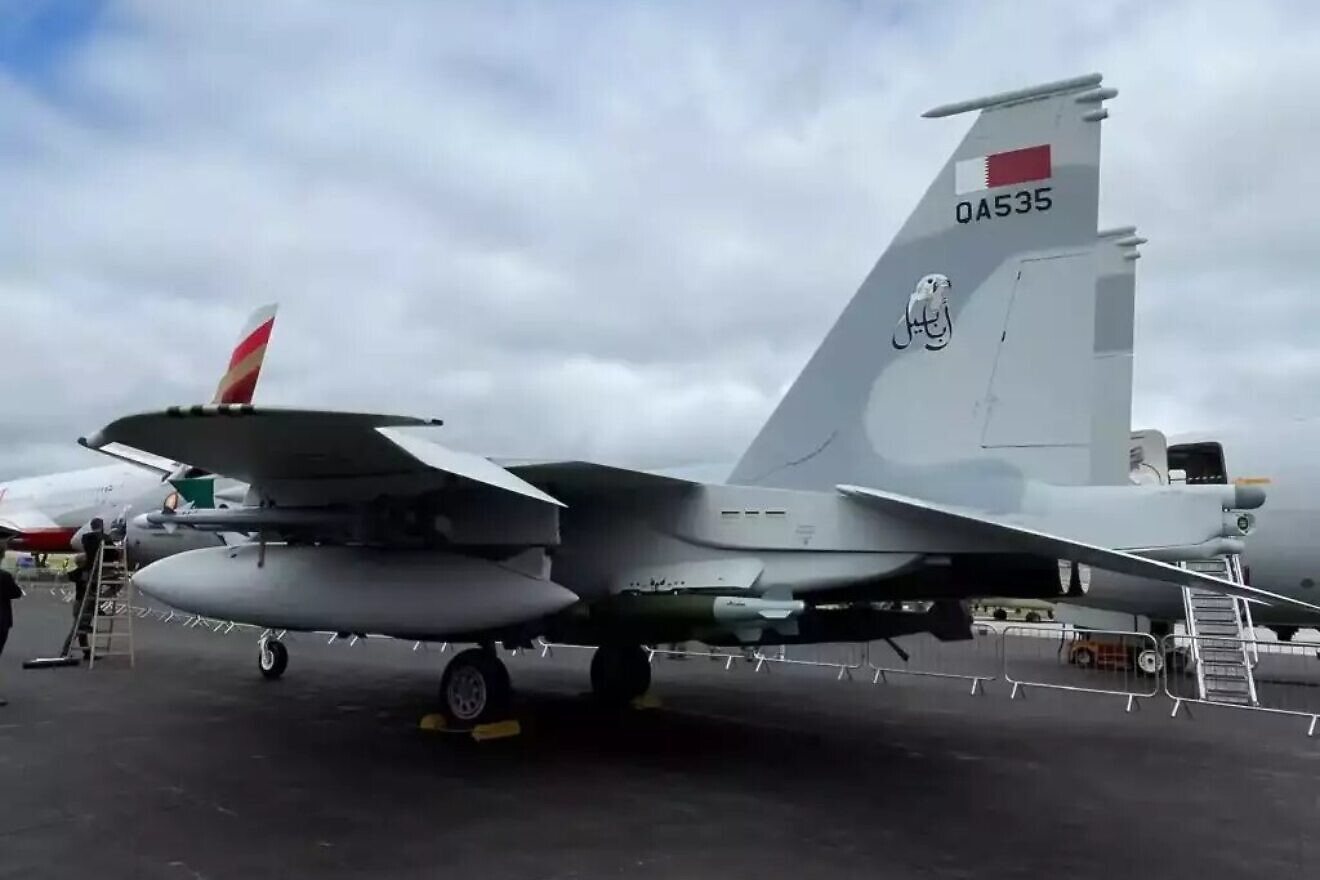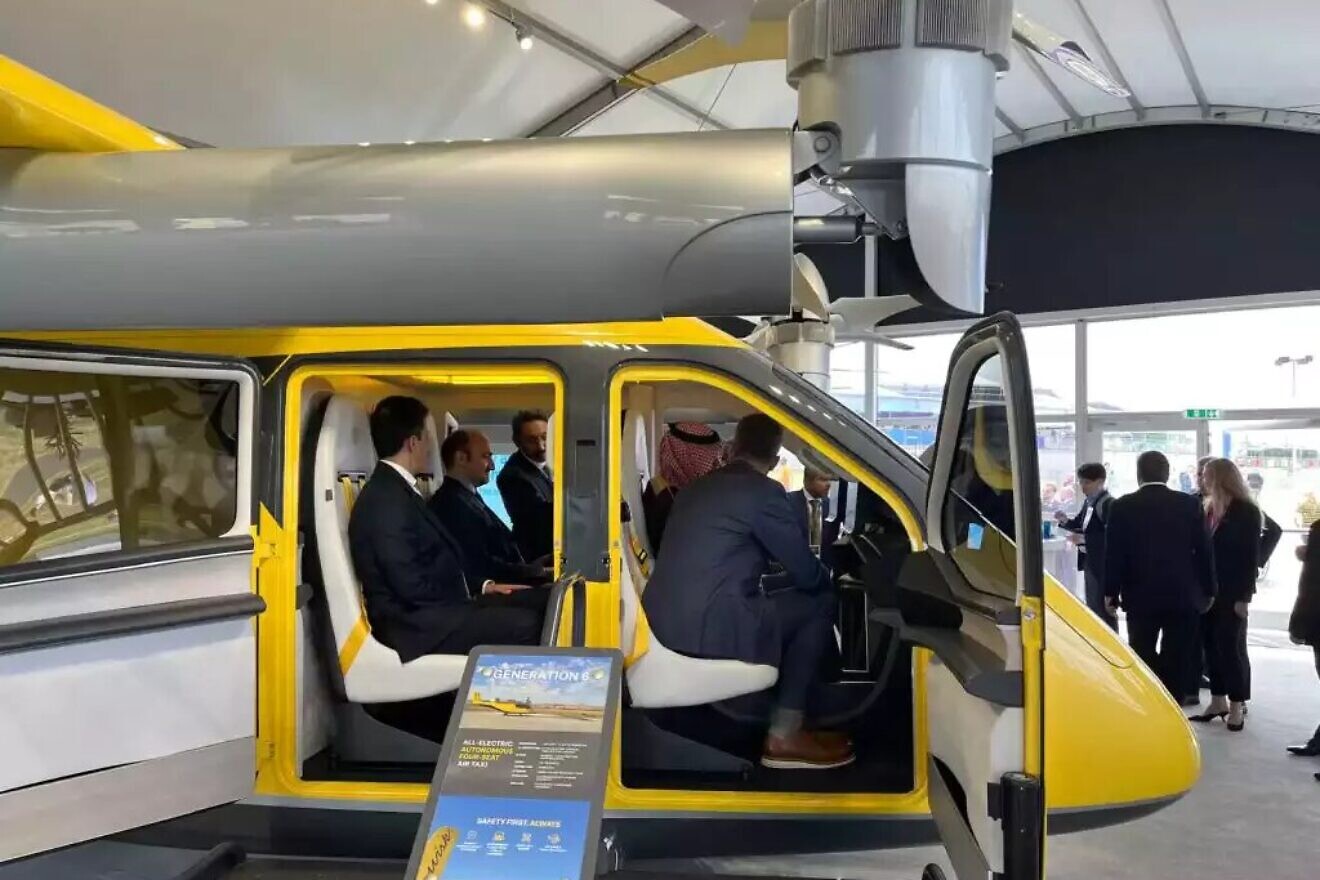Rafael Advanced Defense Systems showcases advances in defense technology at the Farnborough International Airshow
Israel’s groundbreaking Iron Beam laser missile defense system will be operational and in IDF hands by next year, Yoav Turgeman, CEO of Haifa-based Rafael Advanced Defense Systems, revealed on Tuesday at the Farnborough International Airshow in England.
“Two years ago, we achieved a world-first by successfully intercepting an object at an unprecedented distance using laser technology,” added Rafael Chairman Yuval Steinitz, highlighting the system’s unique capabilities.
Forgoing physical displays at this year’s airshow, Rafael is focused on meetings with potential clients. The strategy appears to be paying off, with the company announcing two new buyers for its “Ice Breaker” long-range cruise missile, which boasts superior weight efficiency compared to competitors.
Turgeman praised the exceptional performance of Rafael’s Python 4 and 5 missiles in countering unmanned aerial vehicles (UAVs) and cruise missiles, notably during recent Iranian attacks.
“Their effectiveness is so remarkable that improving upon them will be a challenge,” he said. Python 4, despite being four decades old, continues to impress with its capabilities. Rafael is also developing “Skysonic,” a hypersonic interceptor designed to counter emerging hypersonic missile threats.
The company’s flagship systems, Iron Dome and David’s Sling, have “exceeded all expectations,” according to both executives.
“Iron Dome stands as the world’s most effective system in its class, while David’s Sling has demonstrated outstanding long-range interception capabilities,” Turgeman said.
Attributing much of Rafael’s success to its workforce, Turgeman noted, “Our systems’ developers often serve as their operators in the reserves, providing them with unparalleled motivation to create exceptional technology.”
Steinitz shared an anecdote illustrating employee dedication, describing reserve soldiers returning from Gaza operations only to work at Rafael offices during their weekend leave voluntarily.
“Our workforce of about 9,500 includes 600 employees with doctoral and professorial degrees—there’s no other company like this in the world,” he added.
Global recognition and solidarity
Both executives expressed gratitude for the warm reception and shows of solidarity they received at the airshow. Steinitz recounted a recent visit to the U.S. Congress, where the unprecedented display of Israeli flags outside congressional offices struck him. “In my 25 years of visiting Congress, I’ve never witnessed such a demonstration of support,” he remarked.
The Farnborough skies were dominated by impressive displays by U.S.-built F-35 and F-15EX warplanes. The F-35B, known for its vertical takeoff and landing capabilities, captivated audiences with an ultra-slow flyby. A Qatari-liveried F-15 also drew significant attention.

Qatar’s presence loomed large at this year’s event, featuring a Boeing 787 Dreamliner that attracted long queues of eager visitors and showcasing their new F-15. The Gulf state also sponsored the airshow’s press center, hosting an unprecedented 2,000 journalists from across the globe. Equally eye-catching was the new Airbus A-350 model passenger aircraft, sporting Air India’s livery.

Amid these aviation giants, a small but revolutionary aircraft vied for attention. The Wisk autonomous flying taxi, equipped with 12 electric motors and painted in a striking yellow, represents a potential paradigm shift in urban transportation.
This Boeing-owned venture signals the aerospace industry’s growing interest in electric vertical takeoff and landing (eVTOL) technology.
Originally published by Israel Hayom